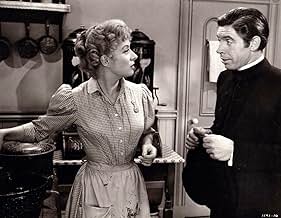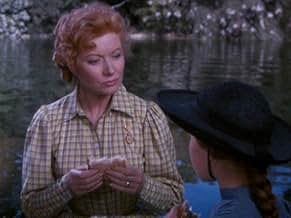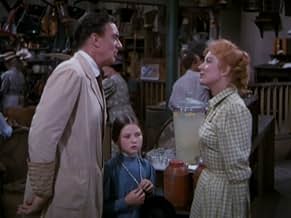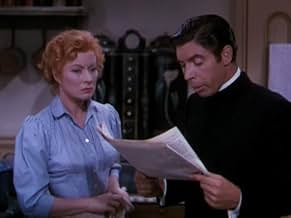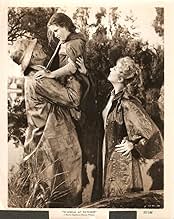An opening reads, "Near the end of the last century, in the Canadian Province of Quebec an Orphanage burnt to the ground. By the grace of God and the courage of the sisters not one child was hurt. But when the noses were counted, one little girl was missing
." That missing nose belongs to adorable orphan Donna Corcoran (as Patsy), who accidentally set the fire. When she is found, kindly nun Agnes Moorehead (as Josephine) and the other sisters set out to find homes for the children. Stopping in Scourie, they are sad to learn the town is overwhelmingly Protestant. Off on her own again, young Corcoran decides to set her goldfish "Harold" free. He was named after the man in the song, "Hark the Harold Angels Sing". Along comes beautiful Greer Garson (as Victoria). She falls in motherly love with Corcoran...
With many rooms in her mansion, the childless Ms. Garson decides to adopt Corcoran...
But the child is Catholic and may stymie the political career of husband Walter Pidgeon (as Patrick J. McChesney)...
"Scandal at Scourie" could have used a more worldly title. It's a cute family film, immaculately produced by Edwin H. Knopf...
The former box-office favorite is as good as ever - arguably, Garson is even better in her post-1940s roles. The luscious cinematography by Robert Planck and gorgeous soundtrack by Daniele Amfitheatrof give it a storybook quality. "Green Sleeves" and "Frère Jacques" are employed very well. Director Jean Negulesco knows how to use his resources. The scene with Garson running through town to a barber shop is a highlight, and Mr. Negulesco guides Corcoran, freckle-faced Tony Taylor (as Edward) and the children nicely. The message of religious tolerance is admirable. Still, while the ingredients are all present, "Scandal at Scourie" has no real depth. A couple of scenes with Garson and Mr. Pidgeon privately discussing their marriage, faith and presumed inability to have children would have given the film an edge.
******* Scandal at Scourie (1953-05-17) Jean Negulesco ~ Greer Garson, Walter Pidgeon, Donna Corcoran, Tony Taylor


